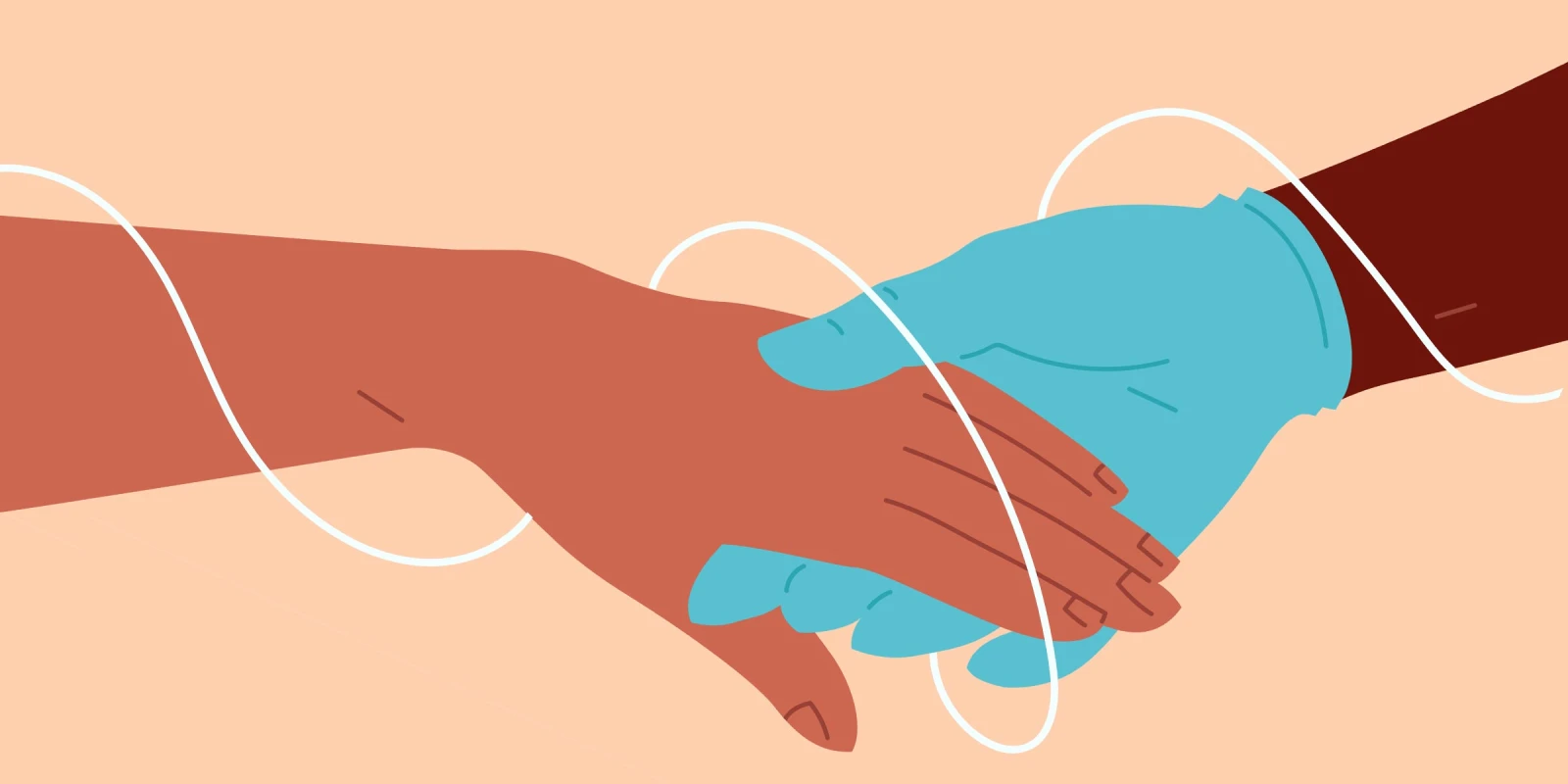Little in our lives feels certain right now. We are immersed in the daily updates of COVID-19 case counts, vaccine rates, and deaths. As the numbers of lives lost to this disease accumulate, they reveal a growing collection of grieving friends and family, suffering in their individual ways.
Grief after the death of a loved one can permeate every aspect of life, interfering with one’s ability to function. It can fill us with remorse, sap our energy, rob us of our appetite or ability to sleep, and create confusion as we witness the world around us still turning on its axis.
A number of factors, such as multiple losses or lack of social support, can interfere with an individual’s ability to move through the process of mourning, leading to complicated grief. In this state, a person feels intense grief, and may also be highly preoccupied with the deceased and/or in denial about the death. They may also experience emotional numbing, intense anger, debilitating self-blame, or a desire to die to be with their loved one/s.
Complicated grief, with its significant functional impairment, typically warrants a referral to a psychotherapist — but not all grieving patients fall under this purview. In fact, many will never seek out (or require) psychotherapy. Instead, they will arrive for their medical appointments as normal, still mired in emotional pain, still struggling to process the upheaval created by the death of their loved one. As trusted professionals in these patients’ lives, we have an opportunity to provide some crucial tools to help them navigate the mourning process, regardless of our specialty.
Dr. J.W. Worden, a psychologist with expertise in grief, writes of four tasks of mourning in his book Grief Counseling and Grief Therapy: A Handbook for the Mental Health Practitioner. These include: accepting the reality of the loss, working through the pain of grief, adjusting to life without the deceased, and maintaining one’s connection with the deceased while moving forward with one’s own life.
These steps align well with the approach utilized in Interpersonal Therapy (IPT). Developed initially as a treatment for major depressive disorder, IPT has been expanded to numerous diagnoses, and is unique in its specific focus on techniques to help patients experiencing grief and loss. The techniques described below can provide all kinds of clinicians with tools to help our patients cope, and can be effective even in a brief clinical encounter.
Encourage Patients to Discuss Their Relationship with the Deceased
Creating a narrative of the relationship with the deceased, rather than using distraction or avoidance, is a powerful facilitator of the mourning process. Patients may fixate on the death itself, reliving the moments just before and after. With the tenets of IPT in mind, I recommend that clinicians gently encourage their patients to discuss the sequence and consequences of events prior to, during, and following the death, and to explore their associated feelings. As trusted professionals, we can normalize the positive and negative feelings that may emerge during this discussion, and can validate patients’ courage in confronting such difficult topics.
Normalize Intense Emotions
Often patients may express fear of “losing it” or “totally breaking down” if they begin speaking about the deceased. As clinicians, we can provide a safe harbor by encouraging expression, normalizing tearfulness and overwhelming sadness, and reassuring them that they can travel through this intense experience without decompensation. Even in our brief encounters with grieving patients or family members, we can help them begin to understand the broad range of emotions they may continue to experience, as well as the nonlinear nature of grief.
Embrace Silence
As we sit with our patients during their expressions of grief, we may feel compelled to take action or say something. However, if we can quietly allow them to share their experiences, not only will we create space for their grief, but we will also communicate to them that we do not find their intense feelings dangerous or intolerable.
Assess for Mourning as Self-Punishment
In some cases, individuals may become mired in a repetitive process of intense emotional and physical reactions for months or even years, struggling to re-enter life and build new relationships. Though there is no specific timeline for how long is “too long” to grieve, it may be helpful to gently inquire about a patient’s experience in these instances. Do they believe they must continue to mourn to demonstrate the level of love and commitment they have for the deceased loved one? Could this repetitive, painful grieving be a self-punishment for feelings of guilt around the circumstances of the death? Probing in this gentle manner could get patients to consider their pain in a new light.
Promote Coping Skills and Self-Care
We can help these grieving patients, during moments of lower emotional intensity, identify how to treat themselves with compassion during triggered moments. Some examples of self-care include: briefly pausing activities, sitting quietly for a moment, reading a meaningful passage in a favorite book, putting on a song that creates comfort, or reaching out to friends or family members.
To the last point, it’s common that while grieving, individuals may socially withdraw. This occurs for a number of reasons. The bereaved person may fear burdening friends or family members, feel overwhelmed by any discussion of the loss, or be resentful of the good fortune of others. A major component of IPT, and a topic that is important to broach, is the strength of a person’s support network, and how to bolster it if it is found lacking.
As medical practitioners, we can also offer executive functioning assistance to our patients via straightforward tools for organizing and prioritizing day to day functioning. Remembering a complex series of pills or scheduling blood work or other diagnostic tests may seem overwhelming to those experiencing grief. Encouraging patients to enlist a family member temporarily could be one way to alleviate some of their added stress.
Provide Resources
As clinicians, there is limited time available in our hectic schedules to sit with our grieving patients. Providing well-written and thoughtful books, or opportunities to connect with other grieving individuals through support groups and local or national organizations, can be beneficial. We can also recognize when a referral for individual counseling might be warranted, and help facilitate this additional care while reassuring the patient that counseling doesn’t mean they aren’t grieving properly. A list of books and organizations to consider recommending can be found here.
Finally, not all of these techniques will resonate with our patients, and they may not be ready or willing to open up to us about their loss. However, keeping these strategies in mind can enrich our interactions. Our patients may leave our offices with echoes of our voices in their heads, providing reassurance that their grief won’t destroy them. Eventually, they may even believe they can incorporate the memory of their loved one into a rich and meaningful future.
What are other ways clinicians can help grieving patients? Share your strategies and experiences in the comments below!
Dr. Jennifer Reid, MD, is a board-certified psychiatrist, specializing in anxiety, insomnia, and interpersonal psychotherapy. She practices in Philadelphia, PA, and writes and podcasts at: www.thereflectivedoc.com.
Image: fedrelena / gettyimages







